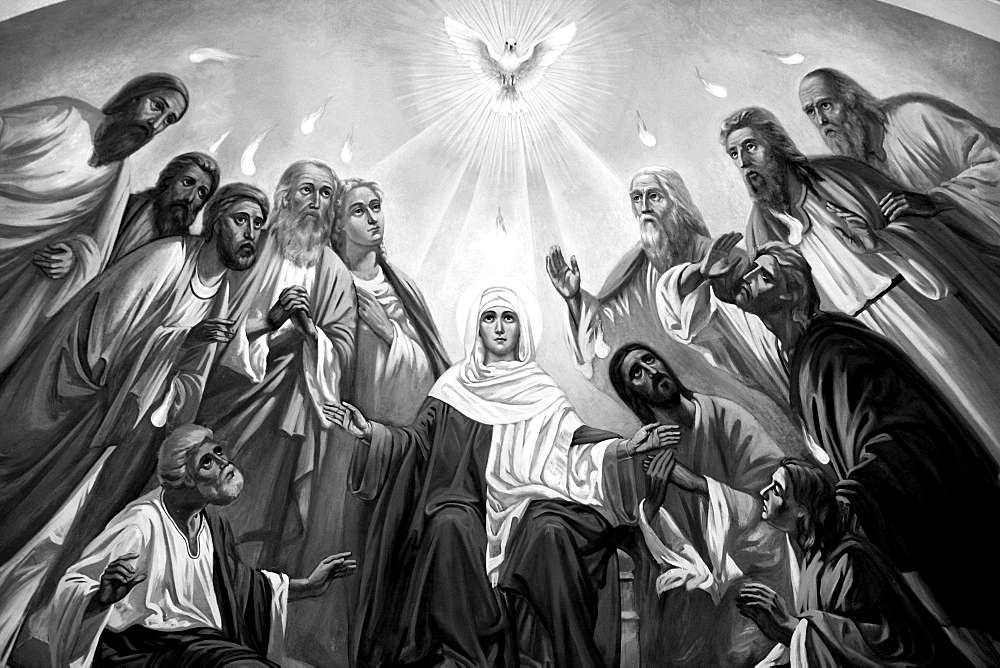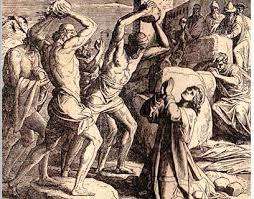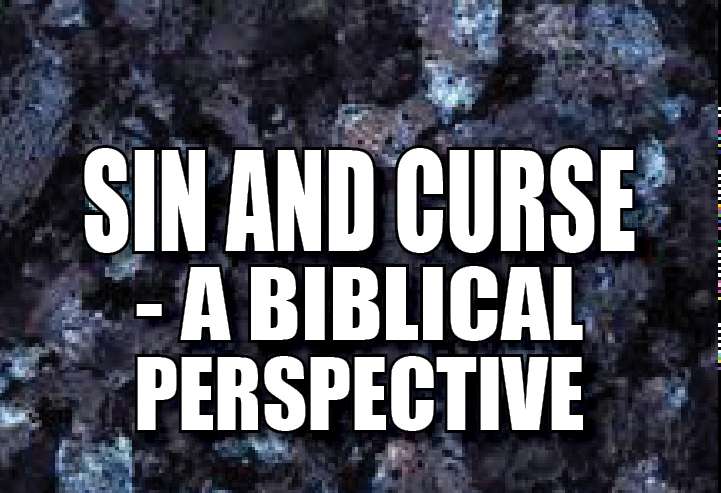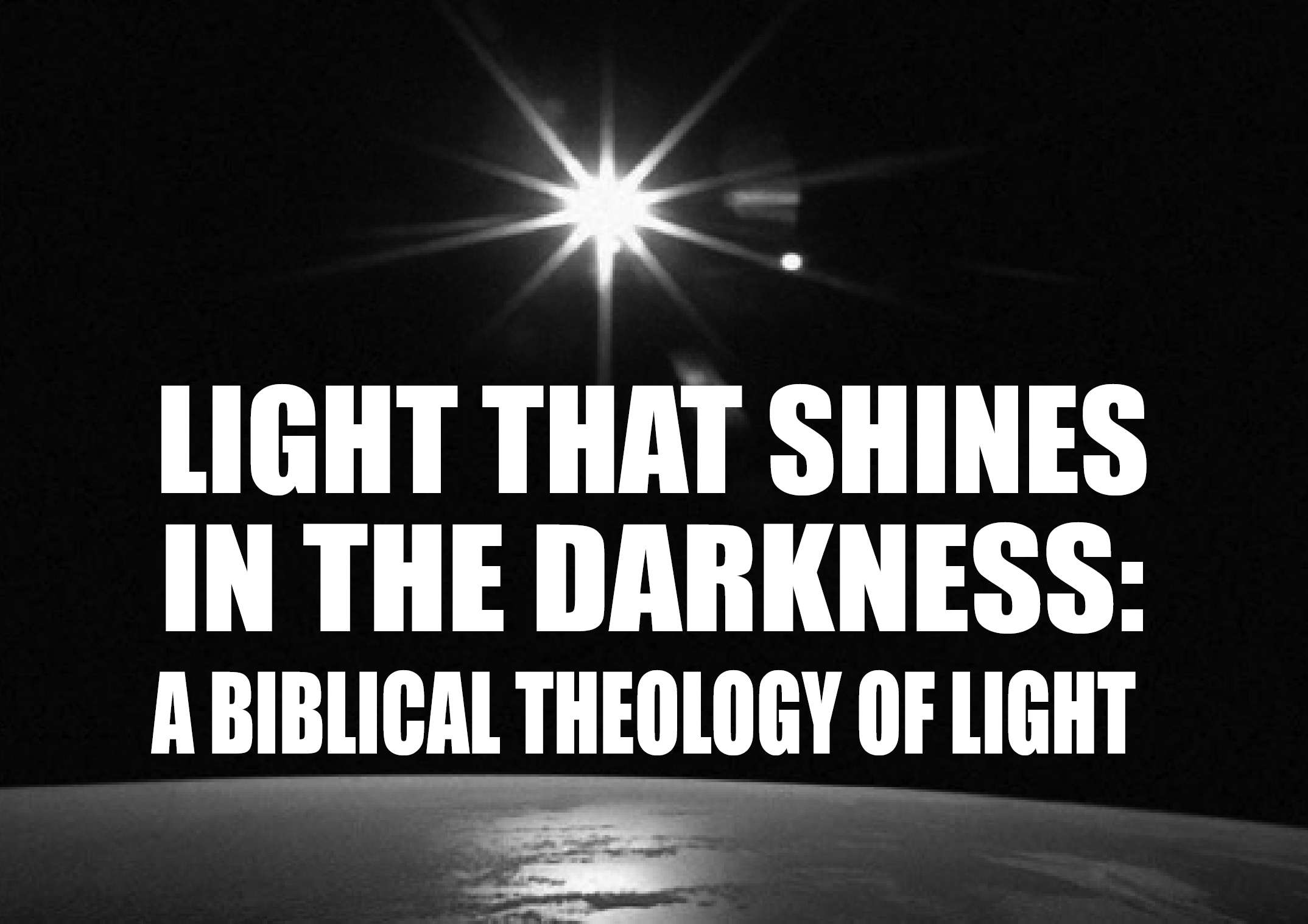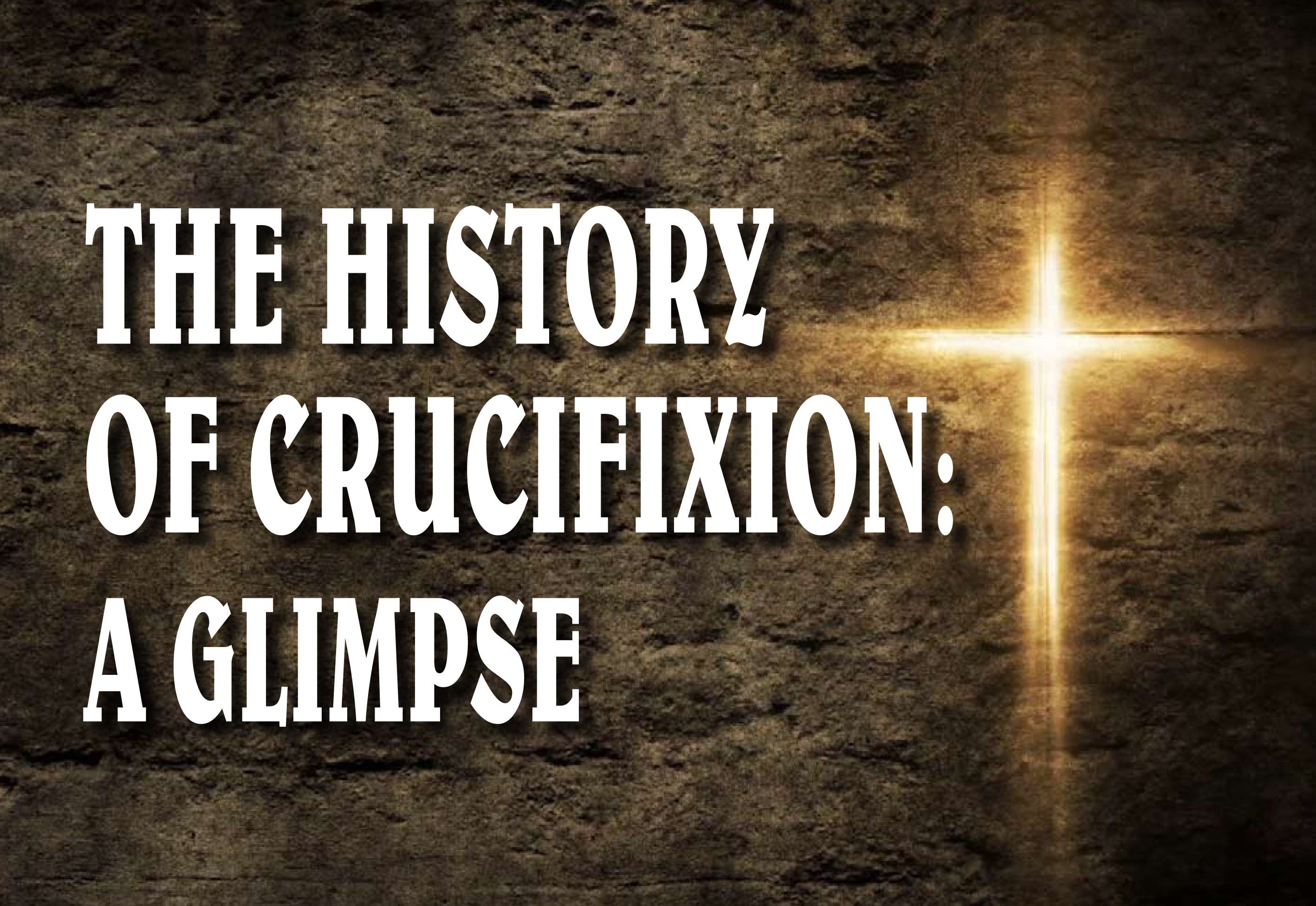
Biblical Foundation of Pentecostalism
Dr. Shaibu Abraham
Introduction
The Pentecostal movement is one of the major Christian denominations in the world today. Of the world's two billion Christians, a quarter are now Pentecostal. The World Christian Encyclopedia states that by AD 2025 Pentecostals/Charismatics are projected to be around 811 million in the world. An estimated 35,000 people join the Pentecostal church each day.
The Dictionary of the Ecumenical Movement says, “The Pentecostal movement has spread rapidly in the third world, faster in the indigenous Churches than in those controlled by foreign mission board”. Though other Churches neglected this phenomenon as an aberration in Christendom, it has grown in a gigantic proportion and reckoned as a decisive force. Jurgen Moltmann rightly points out that Catholic, Protestant and Orthodox theology has far too long overlooked the fact that the Pentecostal movements have become a spiritual and political force. Whereas, the membership of the traditional Churches is declining, that of the Pentecostal Churches is rising all over the world.
In India, this movement began with the out-pouring of the Spirit manifested in various places of the South India; North and North West India - Tirunelveli in the state of Tamil Nadu; Mukti-Mission of Pandita Ramabhai in Kedgaon, near Pune; Sialkot in Punjab and in some parts of Kerala in the beginning of 20th century. Today, Pentecostal Churches are the fastest growing and they are making inroads into many regions and languages of India. The poor are more attracted to and accommodated by the Pentecostal Churches in India. Pentecostal spirituality, characterised by extended prayer meetings, zealous witnessing, and self-venting aggressive worship through song and dance, has often proved useful in bringing people out of the clutches of depression, worthlessness, aimlessness in life, fear and anxiety. Pentecostalism in India thrives among the poor and downtrodden.
We shall delve into the biblical foundation of Pentecostal movement and see how the doctrines of Pentecostal movement is in line with biblical understanding. Although, there are several elements that are based on scripture, we will discuss three of them which are very fundamental to the movement - Pneumatology, Christology and Holiness.
The Biblical Basis of Pentecostalism
The Pneumatological Foundation: The Doctrine of Baptism of the Spirit
The very name Pentecostal and the idea conveyed by it is thoroughly biblical. The name is derived from the Greek word for the Feast of Weeks (Pentecost) and was commanded in Leviticus 23:15-16. It was celebrated at the end of the grain harvest. The people of Israel had to count seven full weeks (or 49 days) beginning on the second day of Passover, and then present offerings of new grain to the Lord as a lasting ordinance. Because of the fifty-day interval, it is known by the Greek name "Pentecost". For Christians, Pentecost is of the highest significance; it is the day on which the Spirit was poured out on the church. Jesus' crucifixion at Passover was the sacrifice for the deliverance of his people, and the subsequent pouring out of the Spirit on Pentecost was the fulfillment of what His sacrifice had promised (John 14:16-20; 16:7).
Just before the resurrected Jesus was taken up into heaven (Acts 1), He told the disciples about the Father's promised gift of the Holy Spirit. He told them to wait in Jerusalem until they received the gift of the Holy Spirit, which would empower them to go out into the world and be His witnesses. A few days later, on the Day of Pentecost, the disciples were all together when the sound of a mighty rushing wind came down from heaven, and tongues of fire rested on the believers. As it is said, "All of them were filled with the Holy Spirit and began to speak in other tongues as the Spirit enabled them" (Acts 2:4).
The crowds observed this event and heard them speaking in different languages. They were amazed and thought the disciples were drunk on wine. Apostle Peter proclaimed that the prophecy foretold by prophet Joel (2:28-32) has been fulfilled by the events witnessed by the Jerusalem crowd ( Acts 2:16-21); “And afterward, I will pour out my Spirit on all people. Your sons and daughters will prophesy, your old men will dream dreams, your young men will see visions. Even on my servants, both men and women, I will pour out my Spirit in those days”. Hearing of the Good News of the Kingdom, 3000 people accepted the message of Christ. That same day they were baptized and added to the family of God. This universal bestowal of the Spirit upon all flesh without any discrimination of race, gender or caste, and exercised at the end-time, is one of the fundamental doctrinal positions of Pentecostalism and is the basic biblical foundation of the movement.
The New Testament experience of the supernatural, explained above, is considered the central characteristic of all major Pentecostal denominations worldwide. While most other Christians have considered this outpouring of the Holy Spirit to be highly unusual, the Pentecostals cherished it as divine grace with a powerful and energizing ministry of the Holy Spirit, to carry out the miraculous. This is interpreted as a rediscovery of the spiritual gifts of New Testament times and their restoration to ordinary Christian life and ministry. Pentecostal denominations hold the distinctive teaching that all Christians should seek a post conversion religious experience called baptism in the Holy Spirit, and that a Spirit-baptized believer may receive one or more of the supernatural gifts that were known in the early church, which include instantaneous sanctification, the ability to prophesy, to practice divine healing, to speak in tongues or to interpret tongues, visions, discernment of spirits, words of wisdom, words of knowledge, miracles, power encounters, exorcisms (casting out demons), deliverances, signs and wonders.
The Christological Foundation
Another important doctrine that is fundamental to the movement is its Christological understanding. The "full Gospel" or the "fourfold Gospel" is the fourfold devotion to Jesus Christ as the Saviour, Spirit Baptiser, Healer and Coming King. This is also sometimes known as the "fivefold Gospel" adding Jesus as the sanctifier. Pentecostal denominations throughout the world identifies this Christological concepts with or without naming it. This doctrinal position is one of the elements that gives Pentecostalism its biblical base.
This term has origins in the Holiness Movement of 18th century and adopted to the Pentecostal movement. A. B. Simpson (1843-1919), the founder of the Christian and Missionary Alliance, framed his core beliefs around the "Fourfold Gospel", that Christ is Saviour, Sanctifier, Healer, and Soon Coming King. This idea is also popularised as "Foursquare Gospel" by Aimee Semple McPherson, the International Church of the Foursquare Gospel and contributed to the fourfold (or fivefold) Gospel. Aimee Semple McPherson summarises it in characteristic Pentecostal style: Jesus saves us according to John 3:16. He baptises us with the Holy Spirit according to Acts 2:4. He heals our bodies according to James 5:14-15. And Jesus is coming again to receive us unto himself according to 1 Thess. 4:16-17.
Donald Dayton expressed that the Pentecostal movement developed this doctrine from the background of the Holiness Movement and various evangelical revival strands of the nineteenth century. Later, Pentecostal leaders adopted this doctrine and used it effectively in Pentecostal evangelistic campaigns. As we look into the biblical legitimacy of this Christological notion, it is obvious that it forms the very basis of Christological structure in the four gospels and the rest of the New Testament.
In the Gospels, the fundamental premise of Jesus as Saviour was presented and closely connected with his mission where salvation is achieved as a present experience resulting from a personal encounter with Jesus. In the healing episode of the paralyzed man (Mk.2:1-12), Jesus’ statement that ‘the Son of man has authority to forgive sins on earth’ (v.10) has profound Christological significance. In Pauline literature, Saviour means ‘one providing salvation,’ and often includes the related meanings of ‘deliverer’ or ‘protector;’ it is linked to the physical dimension also. Christ was the victor and also a liberator from the hostile powers of the cosmos. Paul acknowledges the existence of many ‘gods’ and ‘lords’ but considers Jesus to be the Saviour and Lord (1Cor.8:5-6).
Similarly, nearly one-fifth of the entire Gospel is devoted to Jesus’ healing and the discussions occasioned by it. Jesus devoted a substantial portion of his ministry to performing miracles of healing for a wide variety of people. Mark devotes around thirty one percent of his Gospel to the miracles and healings of Jesus. Matthew also portrays Jesus as Healer (15:30-31), where he describes those afflicted with several ailments were healed by Jesus and concludes that the crowd ‘glorified the God of Israel’. Of the four Evangelists, it is Luke who himself a physician, makes most clear the possibility of miracles serving as a basis of faith. Jesus’ healings in the Gospel of John are pre-eminently signs designed to bring people to faith in Jesus as Son of God (4:54).
The provision of bodily healing through the atonement and by the gift of the Spirit became one of the main theological emphases of the Pentecostal movement. Dayton considers ‘the Divine Healing Movement’ of the nineteenth century as one of the ‘theological roots of Pentecostalism’. Moreover, the divine healing is the only way of healing open to believers and authorized by the Scriptures. Even today the Pentecostals are convinced of this and practice divine healing in their daily life including exorcism, just as the early Pentecostals did. Similarly, we also see the New Testament idea of Jesus as the Spirit baptiser (Jn 1:33) and the coming King, firmly endorsed and proclaimed in the movement.
The Doctrine of Holiness
Another doctrinal position of the Pentecostal movement which has a strong base in the scripture is its emphasis on personal holiness. The doctrine of holiness can be described as one of the most, if not the most, important doctrines of Pentecostal Churches. The Dictionary of Pentecostal and Charismatic Movement terms it as the doctrine of “sanctification” or “Christian Perfection” which denotes completeness, or wholeness, of Christian character, including freedom from sin. The word holiness, which is most widely used today, refers to perfection of soul. Holiness originates in conversion and covers the whole span of the Christian experience in constant growth and cleansing. It is a state of separation and purity wherein souls move toward the perfect likeness of Christ. Moreover, in the Pentecostal doctrinal system, holiness is the result of the baptism of the Spirit, which is also directed towards mission.
Pentecostals stress the need of holy life in every walk of life and strongly reject vices such as drinking, smoking or other impurities. For them, this strong emphasis on holiness is a vital ingredient of their faith and practice. In fact, separation from the world often becomes an important test of genuine faith. This distinct position brings a strict and controlled life-style, which prohibits believers from any kind of unwanted worldly-pleasures and worthless activities. It helps believers to lead a faithful life before God, not contaminating themselves by the evils of the world. The profound understanding is that the believers are the temple of God and the Holy Spirit dwells in each believer. Therefore, one should desist from sins of the world. This understanding of the doctrine of holiness dominates the way of life of the Pentecostal believers. This, on one hand, helps believers to live devoid of the sins of the world and to keep personal holiness and integrity in life and on the other hand, enables them to say no to unfair means of gain and wealth. Early Pentecostals in Kerala even destroyed their areca nut (betel nut) and vettilla (betel leaf) plants as a result of their understanding of holiness. I personally know some faithful people who, out of their passion for holiness, even discarded the use of cosmetics like talcum powder and face creams. The use of ornaments, watching movies, loose talk, and smoking - vices which are silently allowed in other Churches, are strictly prohibited in the Pentecostal Churches. More than a prohibition, as one experiences the joy of salvation and the holiness through the baptism of the Spirit, naturally such things move away from a sanctified life. Furthermore, this understanding of holiness enables believers to resist themselves from ritual practices and festivals, which have religious and cultural connotation. Even today, this attitude gives distinctive identity and a unique spiritual strength to Pentecostal believers. This of course attracted many genuine Christians from other Churches to Pentecostalism and, in my opinion, this is one of the main factors in the rapid growth of Pentecostal Churches.
Pentecostals find ample scriptural evidences for their strict holiness outlook. Frequently quoted Bible verses in relation to holiness are: “Therefore let us go on toward perfection…” (Heb. 6:1); “…make you complete in everything good so that you may do his will …” (Heb. 13:21); “…holiness without which no one will see the Lord” (Heb. 12:14); “... as he who called you is holy, be holy yourselves in all your conduct; for it is written, “You shall be holy, for I am holy” (1 Pet. 1:15-16); “For this is the will of God, your sanctification…” (1Thess. 4:3); “… let us cleanse ourselves from every defilement of body and of spirit, making holiness perfect in the fear of God”. (2 Cor. 7:1).
However, after a century of the movement, this great doctrine of emphasizing the personal integrity and holiness in individual believer's life as well as the community life, is somewhat watered down. Many in the leadership of the Pentecostal denominations are marred by court cases, allegations of financial misappropriations and moral failings. Instead of emphasizing on the internal integrity and ethical standard of biblical teaching, Pentecostals are now more concerned about the outward appearances. It seems that the power of holiness that attracts others is missing from Pentecostal movement as a whole.
Further, Pentecostals all over the world emphasize the central doctrines of the complete authority of the Bible and the necessity of a conversion experience. They firmly believe in the sinfulness of human beings, which can only be taken care of through the atoning work of Christ, and the transfer of Christ’s righteousness to the believer. Pentecostal doctrine also stresses the judgment of God, the imminence of Christ’s return. These features give uniformity to the movement world over and impetus to its growth.
In conclusion, there are many other aspects such as believer's baptism, worship, evangelism, use of spiritual gifts, eschatology etc that are considered closer to the biblical understanding. Space restricts me from explaining further. The unique emphasis on the outpouring of the Holy Spirit, the Christological notion of the fourfold gospel and holiness form the biblical foundation of the movement.
The magnificent growth of the movement world over can be attributed to the above theological positions which will cause the Pentecostal movement to make further inroads into new places.





